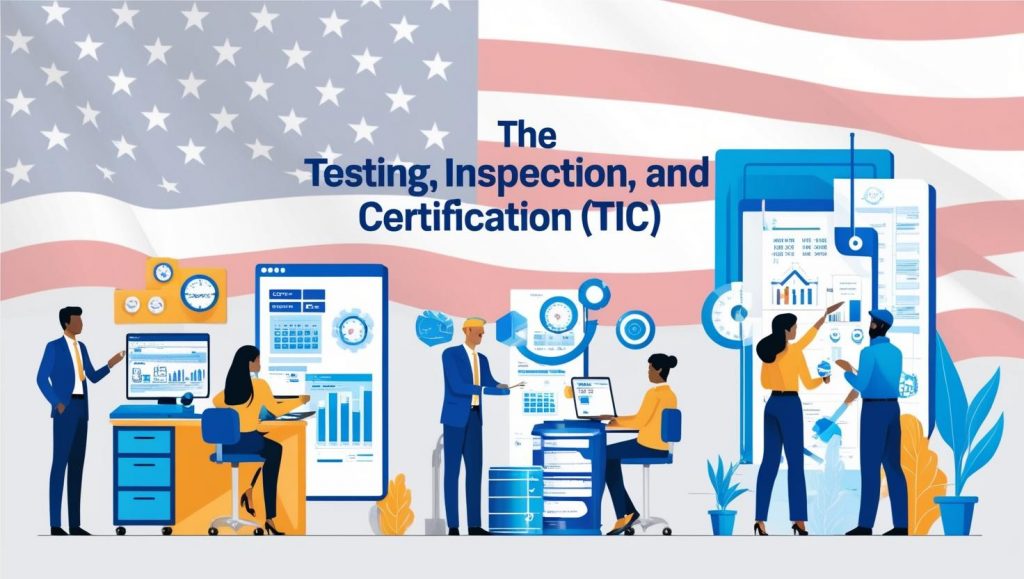The global Testing, Inspection, and Certification (TIC) market stands as a pillar of assurance in a world driven by quality, compliance, and safety. Yet, in recent years, this critical sector has had to recalibrate its strategies in response to mounting trade tensions and sweeping tariff policies—particularly those implemented during the Trump administration. These shifts posed both operational hurdles and strategic inflection points, pushing the TIC industry to rethink and reshape its global footprint.
In the wake of protectionist trade policies and evolving geopolitical dynamics, the TIC market is not just surviving—it’s innovating and advancing beyond traditional boundaries.
Trade Barriers and the Initial Impact
U.S. tariffs imposed on a wide range of goods, including electronics, machinery, industrial equipment, and metals, disrupted global supply chains and significantly impacted cross-border business flows. For the TIC industry, which operates at the intersection of international trade and quality control, the effects were immediate:
- Increased demand for diversified compliance audits as companies shifted supply chains away from tariff-affected regions.
- Higher operational costs due to tariffs on imported lab equipment and testing components.
- A growing need for risk-based inspections in new supplier markets where quality benchmarks were still evolving.
Book Your “Trump Tariff Threat Assessment”
https://www.marketsandmarkets.com/pdfdownloadNew.asp?id=5352498
The Adaptive Response: How TIC Firms Pivoted
Rather than retreating, TIC providers took bold steps to remain relevant and competitive in a post-tariff landscape. The shift catalyzed a wave of modernization, global expansion, and tech integration.
- Regional Diversification
With clients rerouting their sourcing away from China to regions like Southeast Asia, Eastern Europe, and Latin America, TIC firms rapidly expanded their presence in these emerging markets. Establishing local partnerships and on-ground testing labs ensured continuity and proximity to client operations.
- Digital Transformation
Remote inspections, AI-powered analytics, blockchain for supply chain traceability, and cloud-based quality management systems surged in adoption. This shift helped TIC firms reduce dependence on physical audits and accelerate turnaround times—crucial in a fragmented trade environment.
- Customized Compliance Solutions
Companies facing fragmented regulations due to trade realignments turned to TIC providers for tailored solutions. These included:
- Country-specific certification roadmaps
- Rapid-response compliance audits
- Modular service offerings for varying budget constraints
Opportunities in the Post-Tariff TIC Market
While the disruption caused by tariffs was significant, it opened new avenues for growth and leadership in the TIC sector:
- Surge in Nearshoring Activities: As companies bring manufacturing closer to domestic markets to mitigate future trade risks, localized TIC services are experiencing increased demand.
- Sustainability & ESG Certifications: With global pressure mounting around sustainability, TIC firms are stepping up to offer ESG-related inspections, audits, and certifications.
- Digital Product Testing: As e-commerce and smart devices proliferate, TIC providers are expanding into cybersecurity testing, data privacy audits, and software certification.
Challenges That Still Remain
Despite the gains, challenges persist:
- Regulatory Uncertainty: Global regulatory frameworks remain fluid, requiring constant adaptation by TIC providers.
- Margin Pressures: Clients facing economic strain continue to seek cost-effective solutions, putting pricing pressure on TIC services.
- Talent Gaps in Emerging Regions: Rapid expansion into new geographies has made it harder to find qualified local personnel for specialized testing and inspection roles.

